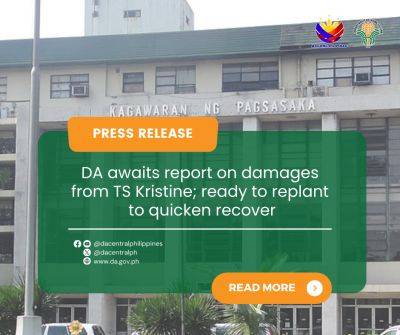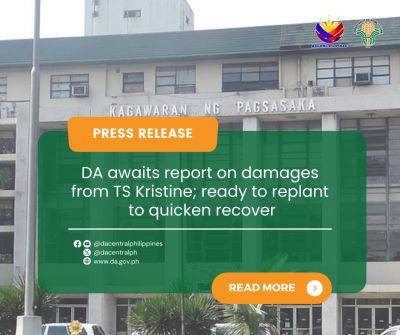Report details fossil fuel threat to 'Amazon of the seas'
CALI, Colombia — Fossil fuel exploration is threatening an ever-expanding swath of the Coral Triangle, one of the most biodiverse marine areas in the world, a report said Saturday.
Issued to coincide with the UN's COP16 summit on biodiversity in Colombia, the report warned expansion in oil, gas and liquefied natural gas (LNG) in the Indo-Pacific region was putting at risk marine species and the communities that rely on them.
Dubbed the "Amazon of the seas" for its species variety, the Coral Triangle covers over 10 million square kilometers (some four million square miles) in waters of Indonesia, Malaysia, Papua New Guinea, Singapore, the Philippines, Timor-Leste and the Solomon Islands.
It contains three-quarters of the world’s known coral species, said the report by monitoring bodies including the threat-mapping research project Earth Insight, satellite imaging watchdog SkyTruth, and the Center for Energy, Ecology, and Development, a Filipino think tank.
The triangle is a home to six of the world's seven marine turtle species, and acts as a feeding ground for whales and other marine mammals.
More than 120 million people rely on it for subsistence.
Yet, oil and gas concessions and production areas overlap with tens of thousands of square kilometers of marine protected areas, said the report.
It noted more than 100 known offshore oil and gas blocks producing in the region. Another 450 blocks are being explored for future extraction.
"If all blocks were to go into production, about 16 percent of the Coral Triangle would be directly impacted by fossil fuel development," said the report.
It warned fossil fuel expansion will increase tanker traffic and the risk of oil spills.
Since July 2020, satellites have spotted 793 oil slicks in the Coral Triangle, said the report.
Almost all were created by transiting vessels, some by oil infrastructure.
"Cumulatively, all slicks covered an area over 24,000 km2 –- nearly enough oil to cover the land in the Solomon Islands," said the report.
Its authors called for a moratorium on oil, gas, mining, and other industrial activities in environmentally-sensitive areas within the Coral Triangle.
They also urged "leapfrogging the use







